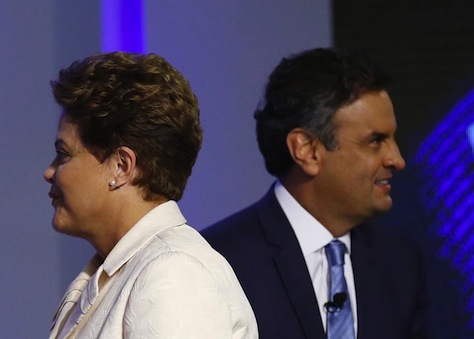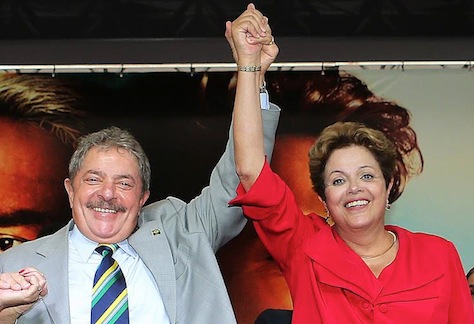Plagued by corruption scandals, a sinking Brazilian economy, protests from young voters who scorn politics as usual and howls from an investor class that has lost faith in her ability to govern effectively, Brazilian president Dilma Rousseff could become the first president to lose reelection since the return of democracy to Brazil in 1985.![]()
In the first round of the Brazilian elections on October 5, she led the presidential vote against her center-right rival Aécio Neves by a margin of 41.59% to 33.55%, and she effectively vanquished former environmental minister Marina Silva, who emerged in late August as the chief threat to Rousseff’s reelection.
* * * * *
RELATED: Five things Neves must do to win the Brazilian presidency
* * * * *
Rousseff now faces a united opposition front — Silva earlier this week endorsed Neves, the candidate of the opposition Partido da Social Democracia Brasileira (PSDB, Brazilian Social Democracy Party). Notably, Rousseff’s governing Partido dos Trabalhadores (PT, Workers Party) lost 18 seats in the lower house of the Brazilian national congress.
Accordingly, Rousseff faces a tough fight against Neves, the popular former Minas Gerais governor, and polls show that she very narrowly trails Neves in the October 26 runoff.
As in any election, however, an incumbent like Rousseff has a strong case. Here are the four things she must do to maximize her bid for reelection and a fourth term for the PT. Continue reading Four things Dilma must do to win the Brazilian presidency




